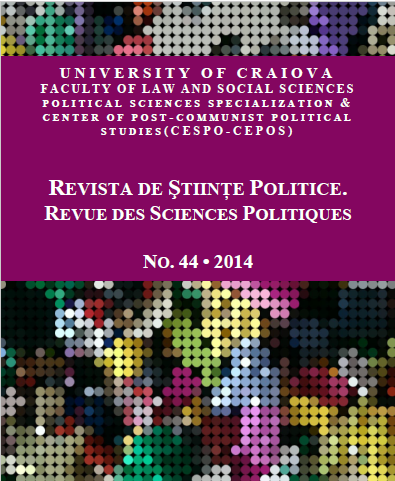Debating Revolution and After: Notes on Institutions Establishment and Cleavage Transition
Debating Revolution and After: Notes on Institutions Establishment and Cleavage Transition
Author(s): Dan Claudiu DănişorSubject(s): Political history, Government/Political systems, Post-Communist Transformation
Published by: Editura Universitaria Craiova
Keywords: liberalism; totalitarianism; pluralism; post-Communism; mass society; general interest; liberty;
Summary/Abstract: The events ocurred at the end of 1989 and the beginning of the ’90s were interpreted for a long time by a great number of Romanian politicians and local intelligentsia as not being a revolution. The dispute seemed to be fed by the divergent use of the concept of “revolution” itself. The events were, thus, qualified as “coup d’état”, “insurrection” etc. Nowadays, after almost a quarter of a century, the stake seems to fade away. The revolution appears to be an acquired asset. However, the consequences of the fundamental issue which initiated it continue to be important, because this represents an ideological, political and legal fracture of the totalitarian regime or of a certain continuity between the two regimes. The essential question is if Romania chose the contrary of the totalitarian regime, that is a liberal state or an alternative viable form, or it continued the totalitarianism in a different shape, “with human face”, imitating, better or worse, the mechanisms of democracy. In the following pages I will try to demonstrate that the Romanian society is characterized of a certain modality of ideological monism, which only imitates pluralism, that is continues to be a mass society, without being capable to generate and to maintain a civil society autonomous in relation to the state, that the liberal principle of priority of just over well-being is not typical to the current Romanian state, as the priority of liberty in relation to the general interest or perfectionist values does not represent a reality in post-Communist Romania. In other words, the current Romanian state, despite the make-up, is not essentially different to the totalitarian one, the difference being only of degree, not of nature.
Journal: Revista de Științe Politice. Revue des Sciences Politiques
- Issue Year: 2014
- Issue No: 44
- Page Range: 12-27
- Page Count: 16
- Language: English

